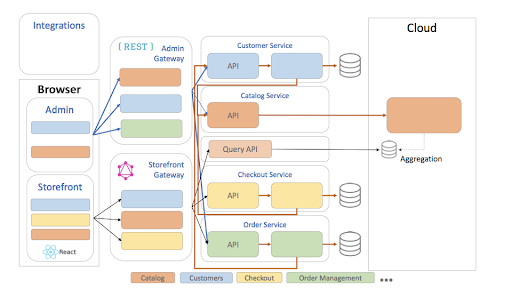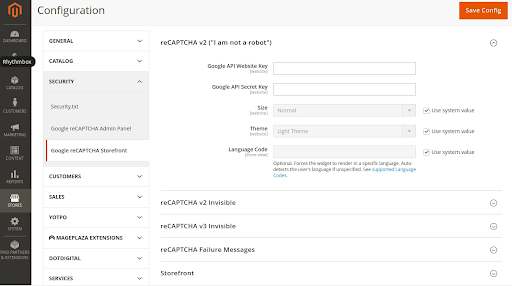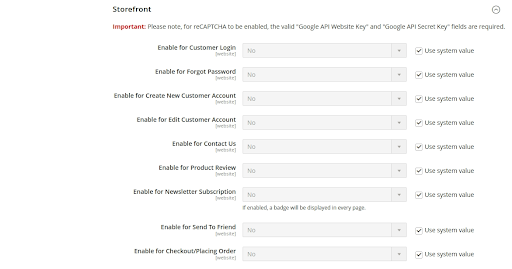Migrating from Magento 1 to Magento 2 is More Beneficial Than You Think!

You must have heard a lot about migrating from Magento 1 to Magento 2 and why it is crucial and imperative. Being an extensive eCommerce platform supported by developers all over the globe and since it is ever so popular, the platform is a major reason why individuals choose Magento as their preferred online store. But what is a Magento store all about? Why migrate data from Magento 1 to Magento 2, and what are the essentials you need to know? Well, here are the top reasons why migrating from Magento 1 to Magento 2 is essential in Magento development services along with everything else you need to know in between.
Magento 1 End of Support
Way back in September 2018, Adobe officially announced the end of support for Magento 1 by June 2020. Following this, it was only a matter of time before Magento 1 faded away and paved the way for Magento 2. With the end of support for Magento 1, no updates would happen to Magento 1.x and therefore it was but obvious that Magento 1 customers needed to migrate their store to the newest version of Magento 2. So naturally, there were questions about what is Magento 2.0 and the most critical concern was the security of the store as well as the customer’s data.
Why Migrating from Magento 1 to Magento 2 Makes Sense?
There are reasons aplenty why moving to Magento 2.0 is advantageous.
Upgraded Technology Stack
Magento 2.0 supports an upgraded software stack. Other than this, it supports Composer 2, Elasticsearch 7.17, OpenSearch 1.2, MariaDB 10.4, MySQL 8.0, PHP 8.1, Redis 6.2, Varnish 7.0, Apache 2.4, nginx 1.8. For more information, visit this guide.
Upgraded Architecture
One of the benefits of migrating from Magento 1 to Magento 2 is the upgraded architecture. As compared to Magento 1 architecture, magento 2 architecture is much cleaner, improved, and organized. The entire architect is organized into different layers (Presentation Layer, Service Layer, Domain Layer, and Persistence Layer ). This architecture is very much useful for vendors building custom modules to customize their stores.

Advanced Reporting
Once you follow the Magento 2 migration steps, generating dynamic reports in Magento 2.0 using the advance reporting feature based on the products, orders, and customer data becomes easy. You can apply filters on the date range and generate reports for days, weeks, months, and even years. You will also see a nice graphical view showing statistics of your store. These graphs give a better and broader picture of the ups and downs that your store has faced.
Security
Some of the Magento 2 security features provided by Magento come as a savior and are as follows:
- Security Scan: Security scan permits you to monitor your Magento store or/and progressive web app to gain an understanding of the known security vulnerabilities and threats. Following this, you will be able to receive regular patch updates from Magento 2.0. The security scan tool is available for free in your commerce account. All you have to do is login and scan your store to check for any security vulnerabilities.
- Google reCAPTCHA: Google reCAPTCHA makes sure that only human beings are interfacing with the store and not any bots. It can be configured separately for admin and storefront. Also, you can control the forms (Customer login, Forgot Password, New customer account, Edit customer account, Contact us etc) on which you will need the captcha to be enabled for the customer. Ultimately, this ensures all forms are submitted by a human being.


- Two-Factor Authentication: Two-Factor Authentication is a very good option for securing your Magento admin from unauthorized access. You have variety of options to setup Two-factor authentication such as using Google Authenticator, Duo Security, Authy, and U2F (Yubikey and other devices).
Scalability and Performance Optimization
When you migrate data from Magento 1 to Magento 2, the store administrator always wants to accommodate more data in addition to what the Magento platform provides. You can easily accommodate additional product data, customer data, order data, and category data using the Entity Attribute Value (EAV) concept.
Additionally, the loading time of the website has been improved significantly in Magento 2.0. Getting it to around 1.5 seconds is great speed optimization that a store can achieve. Using different options such as enabling flat categories & products, Merging CSS and JS files, Content Delivery Network, Full page Caching, and Image optimizations have a great impact on improving the page speed of the site.
Improved Functionalities and New Features
Many features are improved in Magento development services and you will notice the difference yourself after migrating from Magento 1 to Magento 2. Above all, the platform improves the customer interfacing experience with the store. When the product is added to a cart on Magento 1 store, it refreshes the entire page, whereas in Magento 2.0, it uses AJAX-based add to cart functionality which refreshes only the cart portion in the header. Also, admin dashboard is improved a lot, showing current statistics of the entire store such as lifetime sales, average order amount, latest orders, top search terms, and most viewed products among others. It’s a wise move to seek Magento experts to help you leverage these improvements and elevate your online store. A hiring guide for Magento experts will assist you in finding the perfect match for your business needs.
New features such as page builders have been introduced in Magento 2.4.3 which has excellent built-in features such as adding custom carousels, product grids/carousels, tabs, blocks, etc. Now, you don't really have to worry about how to build the landing pages in Magento as Page builder has made it very simple for both desktop and mobile views.
So there you have it. The perks of migrating from Magento 1 to Magento 2 are certainly wonderful and more tailored to the storeowner’s benefit. All in all, you obtain higher performance and speed to boost your eCommerce business, improved online store security as well as a huge number of extensions that make customization simple. Magento 2.0 also revolves around a better user experience (UX) and focuses on admin panel enhancement. Additionally, the platform comes with an extensive range of eCommerce functionalities for all size eCommerce businesses.
Experience the power of Magento 2 and unlock the full potential of your online store with our Magento development service experts.

Why CRM is important


